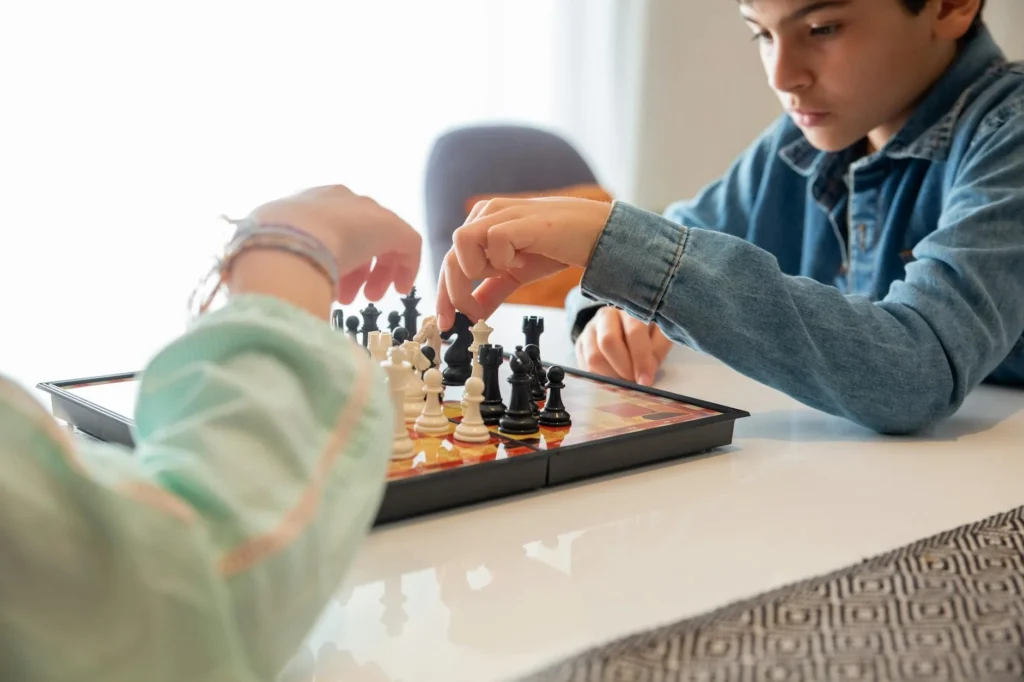Last updated on August 25th, 2025
Feeling lost is something many of us go through, often more than once in our lives.
It’s easy to feel stuck or without purpose, and acknowledging this is the first step to finding your way.
The key lies in taking actionable steps that can help you regain your path and sense of direction.
First, realize that feeling lost isn’t unusual and doesn’t make you weak—it just makes you human.
It might help to discover new self-care practices for healing heartache by exploring guides like Healing Heartache: 10 Self-Care Practices for Grief and Loss or focus on personal growth with Effective Habits for Personal Growth and Success.
These resources can inspire and guide you toward finding peace and clarity.
If comparing yourself to others contributes to these feelings, consider reading Incomparable You: The Dangers of Comparing Yourself to Others, which can help you embrace your unique journey and avoid pitfalls of unfair comparisons.
Remember, it’s perfectly okay to feel lost at times. What’s essential is having the willingness and courage to find your way back.
Understanding the Feeling of Being Lost
Feeling lost is a universal experience that knows no boundaries. It can sneak up on us in moments of transition or when life doesn’t go as planned.
Understanding where this feeling stems from can be the first step toward regaining a sense of control and direction.
Common Causes of Feeling Lost
Feeling adrift is often linked to life’s major transitions and unexpected changes. Here are some common triggers:
- Life Transitions: Moving to a new city, entering a new life stage, or retiring can disrupt your familiar patterns and make you question your identity.
- Career Changes: Starting a new job or feeling stagnant in your current role can leave you wondering about your next step. Learn more about navigating transitions in our article on Goals for a 45 Year Old Woman: Finding Your Path.
- Personal Setbacks: Challenges like the loss of a relationship, health issues, or financial difficulties can shake your confidence and make you feel disconnected from your sense of purpose.
These experiences can leave you feeling like you’re wandering without a map, unsure of where to go next.
The Psychological Impact
The emotional toll of feeling lost is significant. It can manifest in several ways:
- Anxiety and Depression: These feelings can amplify uncertainty, making every decision feel monumental. According to UnityPoint, prolonged stress or emotional experiences can worsen these feelings, leading to emotional shut down.
- Disconnection: When you feel lost, you might also feel a disconnect from the things and people around you, creating a sense of isolation.
- Loss of Motivation: The drive that usually propels you forward can diminish, making it hard to pursue goals or engage in activities.
Each of these impacts can create a vicious cycle that makes it even harder to find your way back.
If you’re struggling with these feelings, the Substance Abuse and Mental Health Services Administration (SAMHSA) provides resources and support to help you cope with mental health challenges.
Acknowledging and understanding these factors can empower you to take steps toward clarity and reconnection with your purpose.
Also, remember that you are not alone in this journey, and there are pathways to finding balance and direction again.
Immediate Steps You Can Take When You Feel Lost
Everybody feels lost at times, like a ship drifting without a compass. These moments can be unsettling, but they also present opportunities for growth and self-discovery.
Here are some immediate steps to get you back on course when you find yourself feeling adrift.
Take a Moment to Reflect
Reflection is a powerful tool for self-understanding. It isn’t just about pausing; it’s like pressing your mental reset button.
When you feel overwhelmed, take a deep breath and give yourself permission to process your emotions.
What are you truly feeling? Sadness, confusion, or frustration?
- Journaling: This can help capture thoughts and put them into words, providing clarity.
- Quiet Space: Find a serene spot to sit and think without interruption.
Understanding your feelings is the first step toward finding your way. Remember, it’s perfectly okay to not have all the answers right now.
Reach Out for Support
Even the strongest individuals need support sometimes. Often, talking to someone who cares can illuminate perspectives you hadn’t considered.
- Friends and Family: These loved ones know you well and can offer comfort or advice.
- Professional Help: Sometimes it’s beneficial to reach out to a counselor or therapist who can provide guidance. Organizations like SAMHSA offer resources and support for mental health challenges. Exploring institutions such as the National Institute of Mental Health can also be valuable.
- Support Groups: Joining a group of individuals experiencing similar feelings can create camaraderie and mutual support.
Engage in Self-Care Practices
Self-care is a lifeline. Taking care of yourself is crucial when going through periods of uncertainty and finding your way back when you feel lost.
- Mindfulness Practices: Activities like meditation or yoga can restore your peace of mind.
- Physical Activity: Exercise releases endorphins, helping to reduce stress and improve mood.
- Creative Outlets: Try painting, cooking, or any activity that brings joy and relaxation.
Prioritizing self-care activities is essential. Check out resources on how to deal with uncertainty for more on embracing self-care.
Feeling lost is a phase, not a permanent state. Each action you take, no matter how small, is a step closer to finding your path again.
Trust in the process, because life is a journey, not a destination.
Long-Term Strategies for Rediscovering Yourself
Feeling adrift and disconnected from yourself can be overwhelming.
When life feels like it’s spinning out of control, there are long-term strategies that guide you back to your true self.
Such as setting meaningful goals, exploring new interests, and practicing gratitude and mindfulness. With all these, you’ll find the clarity and peace you seek.
Set Meaningful Goals
Having clear, personal goals puts a roadmap in your hand when you feel lost. Goals not only give direction but also fuel your motivation.
They are like stepping stones leading you toward your ideal life.
- Define Your Purpose: Start with what truly matters to you. Consider using resources like Goals for a 45 Year Old Woman: Finding Your Path to inspire you.
- Short and Long-Term Objectives: Balance aspirations that you can achieve soon with those that are more far-reaching.
- Revisit and Revise: Life evolves, and so should your goals. Regularly review them to ensure they remain aligned with your values.
Setting meaningful objectives is like adjusting the sails of a ship; even subtle changes can dramatically alter your course over time.
Explore New Interests and Passions
Being open to new experiences can rekindle a sense of wonder and joy. If what you used to love no longer serves you, it’s okay to seek fresh paths.
- Try Different Activities: Experiment with hobbies or activities that interest you, whether it’s painting, hiking, or photography.
- Meet New People: Join clubs or social groups to interact with individuals who share your newfound interests.
- Personal Development: Take a class or attend workshops to learn skills that intrigue you.
Exploring new interests is like lighting a spark inside—a beacon in the darkness that can guide you back to what makes you come alive.
For more inspiration on self-discovery, consider this guide on rediscovering yourself.
Practice Gratitude and Mindfulness
In a life filled with constant noise, taking moments to practice gratitude and mindfulness can ground you and clear the clutter from your mind.
- Daily Gratitude Journaling: Write down three things each day that you’re grateful for, no matter how small. Over time, this will shift your mindset toward the positive.
- Mindful Breathing: Spend a few minutes each day focusing solely on your breath. This practice can reduce stress and bring a sense of calm.
- Nature Walks: Engaging with nature can enhance your mindfulness practice, offering peace and clarity.
Cultivating these practices helps you peace thus renewing your passion for life.
As you integrate gratitude and mindfulness into your daily routine, you’ll find that you rediscover yourself in the quiet moments.
Consider exploring these 9 tips for self-discovery to kick-start your journey.
When to Seek Professional Help
Feeling lost is no small matter, especially when it begins to cloud your well-being. Knowing when to seek professional help can be a decisive step toward regaining balance.
Your mental health is just as important as your physical health, and sometimes, we need external support to go through challenging periods.
Recognizing Red Flags
It’s important to identify when feelings of being lost turn into more serious mental health concerns. Think of this as a storm warning; the signs might be clear to some but blurry to others.
- Persistent Sadness or Anxiety: If these feelings linger and disrupt daily life, it’s a red flag.
- Loss of Interest: A sudden disinterest in activities once enjoyed is a significant indicator.
- Disrupted Sleep Patterns: Experiencing insomnia or excessive sleeping can signal deeper issues.
Recognizing these signs early means you’re more prepared to seek help before things escalate.
For more details on when to consider seeking professional assistance, check out this article from SAMHSA.
Finding the Right Support
Choosing the right mental health professional is crucial. It’s like finding the right guide for a journey; the better the fit, the smoother the path.
Here’s how you can go about it:
- Research and Referrals: Ask trusted people for recommendations, or look for reviews online to gauge professional reputations.
- Initial Consultation: Meet with potential therapists to see if their style and methods resonate with you.
- Check Credentials: Verify their certifications and areas of expertise to ensure they align with your needs.
The right support can make a world of difference.
If you’re feeling overwhelmed, consider exploring resources such as Overcoming Imposter Syndrome for insights that can supplement your professional guidance.
Seeking help is a bold but necessary step, not a sign of weakness. Remember, it’s about taking charge of your well-being and paving a way back to a fulfilling life.
Final Thoughts
Feeling lost is a part of the human experience, and it offers an opportunity for growth and introspection.
Embrace the discomfort, and it can become your greatest teacher.
Take proactive steps to reflect on your emotions, connect with supportive friends or professionals, and nurture yourself through self-care practices.
These actions can reorient you towards purpose and clarity.
To truly transform these feelings into a positive force, consider exploring resources like 90 Inspirational Quotes Beginning New Journey for motivation.
Also, explore What Represents Confidence: Master Self-Assurance Guide to boost your inner belief.
Ask yourself what small step you can take today to reclaim your path.
It’s time to trust the journey, embrace uncertainty, and bravely step forward into the life you envision.
If this resonates with you, don’t hesitate to dive deeper into strategies like those from Developing Resilience: In Your Confidence-Building Journey.
For those seeking a more visual and interactive approach, this YouTube video, Feeling Lost in Your 20s, offers comforting insights and advice.
Thank you for embarking on this journey with us. What will your next step be? Share your thoughts and let’s continue this path to self-discovery together.
Love what you read? Spread the joy with your friends and pin it on your Pinterest board. Each share and pin significantly supports our mission to motivate others.
Join our community by subscribing and sharing today.






